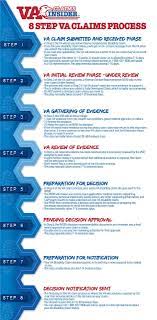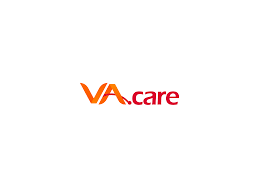VA Health Care: Providing Quality Care for Our Veterans
When it comes to honoring and caring for our nation’s veterans, the Department of Veterans Affairs (VA) plays a crucial role. One of the key services provided by the VA is comprehensive health care for eligible veterans. The VA Health Care system is designed to ensure that those who have served our country receive the quality care they deserve.
First and foremost, the VA Health Care system is committed to providing accessible care to all eligible veterans. Regardless of when or where they served, veterans can rely on the VA for their health care needs. From routine check-ups to specialized treatments, the VA offers a wide range of medical services tailored specifically to veterans.
One of the most significant advantages of VA Health Care is its comprehensive nature. The system provides primary care, specialty care, mental health services, and even long-term care options. This holistic approach ensures that veterans receive all-encompassing medical support throughout their lives.
Moreover, the VA Health Care system focuses on preventive care and wellness programs. By emphasizing early detection and disease prevention, the VA aims to improve overall health outcomes for veterans. Regular screenings, vaccinations, and health education initiatives are just a few examples of how the VA promotes a proactive approach to well-being.
Another noteworthy aspect of VA Health Care is its commitment to research and innovation. The VA conducts extensive research in various fields such as traumatic brain injuries, post-traumatic stress disorder (PTSD), prosthetics development, and many more. By investing in cutting-edge technologies and medical advancements, the VA continually strives to improve treatment options and enhance veterans’ quality of life.
Additionally, one cannot overlook the convenience offered by the VA Health Care system. With numerous medical centers, community-based outpatient clinics, and Vet Centers spread across the country, veterans can access care close to their homes. Telehealth services further expand accessibility by allowing remote consultations through video calls or phone appointments.
The dedication of the VA Health Care system extends beyond just medical treatment. It also includes support services for veterans and their families. These services encompass social work assistance, counseling, caregiver support, and rehabilitation programs. By addressing the various needs of veterans holistically, the VA ensures a comprehensive approach to their well-being.
It is important to note that eligibility for VA Health Care is based on factors such as service-connected disabilities, income level, and other criteria. Veterans are encouraged to check their eligibility status and apply for enrollment through the VA’s official website or by visiting a local VA facility.
In conclusion, the VA Health Care system plays a vital role in providing quality care for our veterans. With its commitment to accessibility, comprehensive services, preventive care initiatives, research advancements, and support programs, the VA ensures that those who have served our country receive the care they deserve. As a nation, it is our duty to honor and support our veterans by recognizing the importance of quality health care through the VA system.
Frequently Asked Questions About VA Health Care in the US
- What is VA health insurance called?
- Do US veterans get free healthcare?
- What does VA health care benefits cover?
- Who qualifies for VA healthcare benefits?
What is VA health insurance called?
VA health insurance is commonly referred to as VA Health Care or Veterans Health Administration (VHA) coverage.
Do US veterans get free healthcare?
US veterans are eligible for healthcare through the Department of Veterans Affairs (VA) system. While it is not entirely free for all veterans, many veterans do receive healthcare services at no cost or at a reduced cost, depending on their eligibility and specific circumstances.
Eligibility for free or reduced-cost healthcare through the VA is determined by various factors such as service-connected disabilities, income level, and other criteria. Veterans with service-connected disabilities typically receive priority access to VA healthcare and may qualify for free healthcare services related to their service-connected conditions.
For veterans who do not have service-connected disabilities or meet specific income thresholds, the VA operates on a tiered enrollment system based on priority groups. These priority groups determine the amount of cost-sharing required for certain services. Veterans in higher priority groups generally have access to more comprehensive benefits and lower out-of-pocket costs.
It’s important to note that while certain services may be provided at no cost or reduced cost through the VA, there may still be some associated fees or co-pays for certain medications, specialized treatments, or non-service-related conditions.
Additionally, it’s worth mentioning that veterans who are enrolled in VA healthcare also have access to a wide range of medical services beyond just primary care. These services include specialty care, mental health care, preventive care, long-term care options, and more.
It is recommended that veterans interested in accessing VA healthcare should contact their local VA facility or visit the official VA website to determine their eligibility and learn about the specific benefits available to them. The VA provides comprehensive information regarding eligibility requirements and the application process for enrollment in its healthcare system.
Overall, while not entirely free for all veterans, the VA strives to provide accessible and affordable healthcare options tailored to meet the unique needs of those who have served our country.
What does VA health care benefits cover?
VA health care benefits offer a comprehensive range of services to eligible veterans. These benefits cover a wide array of medical treatments and services, including:
- Primary Care: VA health care provides routine check-ups, preventive care, and general medical services to address veterans’ primary health needs.
- Specialty Care: Veterans can receive specialized medical care from a variety of disciplines such as cardiology, dermatology, orthopedics, oncology, and more.
- Mental Health Services: The VA offers mental health care services to address conditions like post-traumatic stress disorder (PTSD), depression, anxiety, substance abuse disorders, and other mental health concerns.
- Prescription Medications: VA health care covers prescription medications prescribed by VA providers to treat various conditions. Medications are available through VA pharmacies or by mail.
- Preventive Care: The VA emphasizes preventive care measures such as immunizations, screenings for diseases like cancer and diabetes, and health education programs to promote overall wellness.
- Emergency Care: In case of a medical emergency, eligible veterans can seek emergency treatment at non-VA facilities covered by the VA.
- Medical Imaging and Laboratory Services: The VA provides access to diagnostic tests like X-rays, CT scans, MRIs, ultrasounds, as well as laboratory testing for accurate diagnoses.
- Rehabilitation Services: Veterans may receive physical therapy, occupational therapy, speech therapy, prosthetics and orthotics services to aid in their recovery or improve functional abilities.
- Home Health Care: For eligible veterans who require assistance with daily living activities or nursing care at home due to illness or disability, the VA may provide home health services.
- Long-Term Care: The VA offers various long-term care options including nursing homes (community living centers), assisted living facilities (community residential care), adult day healthcare programs for eligible veterans who require ongoing support.
It’s important for veterans to note that specific coverage may vary based on individual eligibility, priority groups, and the availability of services at their local VA medical facilities. Veterans are encouraged to contact their local VA facility or visit the official VA website to gain a comprehensive understanding of the specific benefits they may be eligible for.
Who qualifies for VA healthcare benefits?
Eligibility for VA healthcare benefits is determined by several factors. Generally, the following groups of individuals may qualify for VA healthcare benefits:
- Veterans: Veterans who served in the active military, naval, or air service and were discharged under conditions other than dishonorable may be eligible for VA healthcare benefits.
- Active Duty Service Members: Current active duty service members may be eligible for VA healthcare benefits during their service period, as well as after they are discharged.
- National Guard and Reserve Members: National Guard and Reserve members who were called to active duty by a federal order and completed the full period for which they were called may be eligible for VA healthcare benefits.
- Former POWs (Prisoners of War): Former prisoners of war may qualify for comprehensive VA healthcare benefits.
- Purple Heart Recipients: Veterans who received a Purple Heart medal are generally eligible for priority access to VA healthcare services.
- Veterans with Service-Connected Disabilities: Veterans with disabilities that are considered to be connected to their military service may be eligible for comprehensive VA healthcare benefits.
- Low-Income Veterans: Veterans with limited income and resources may qualify for free or reduced-cost care through the VA’s income-based eligibility criteria.
- Certain Groups of Veterans: There are specific groups of veterans that have unique eligibility criteria, such as those exposed to Agent Orange or other environmental hazards during their service, veterans who served in combat zones after the Gulf War, and veterans who served in specific time periods or locations designated by the VA.
It is important to note that eligibility criteria can vary depending on factors such as the type of benefit sought, length of service, discharge status, income level, and other individual circumstances. To determine eligibility and apply for VA healthcare benefits, it is advisable to contact the nearest VA medical center or visit the official website of the Department of Veterans Affairs (VA).



